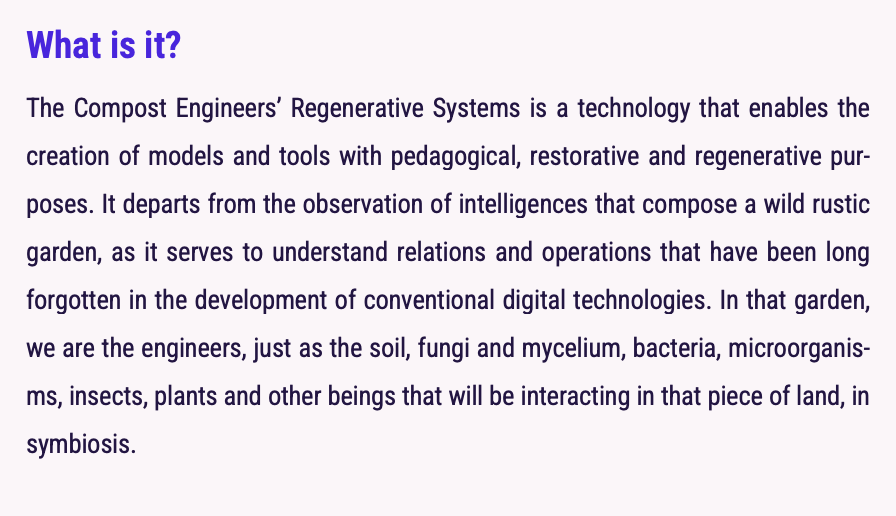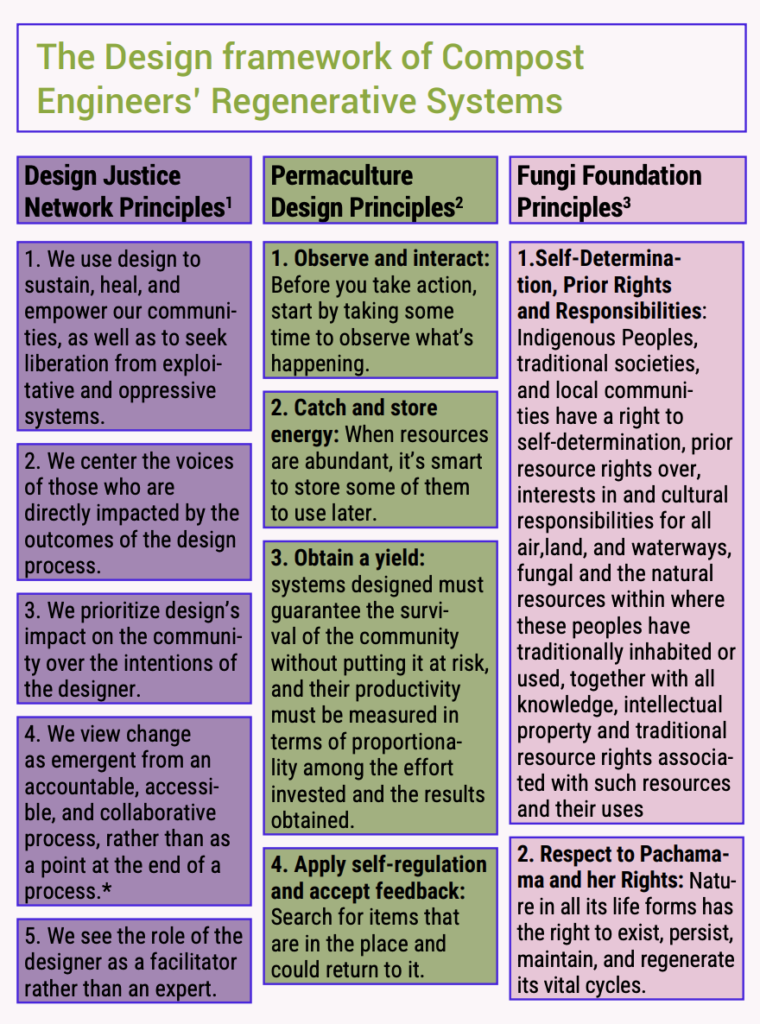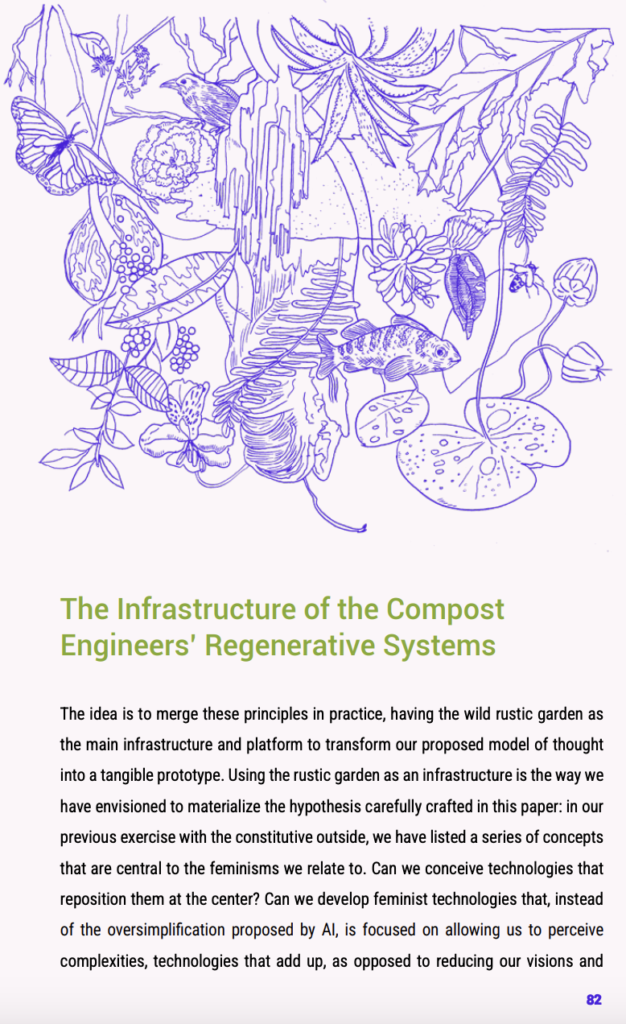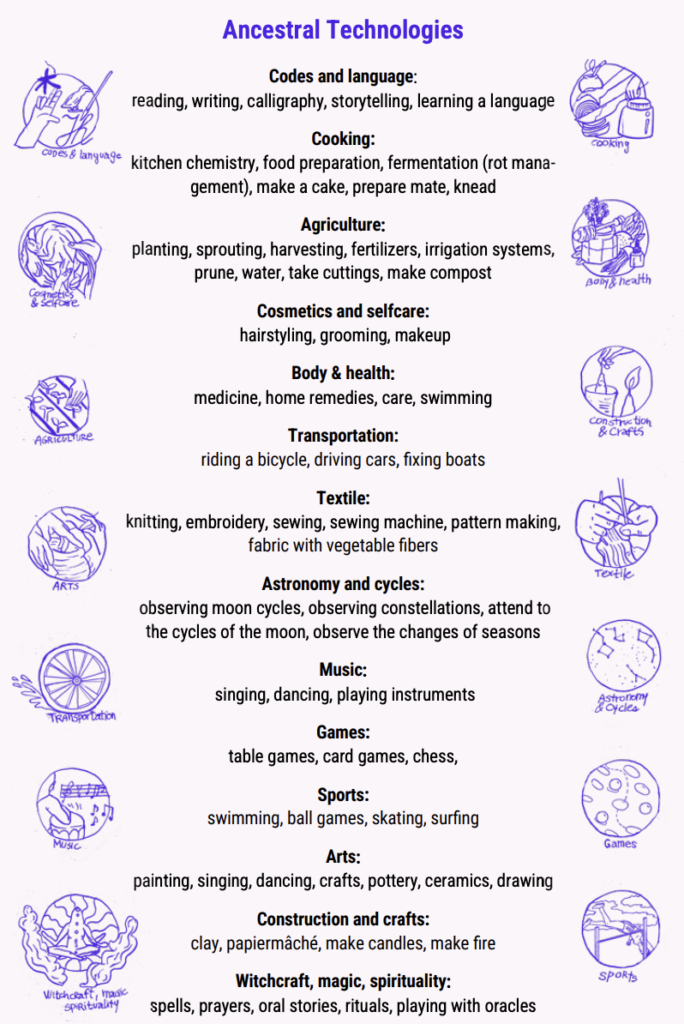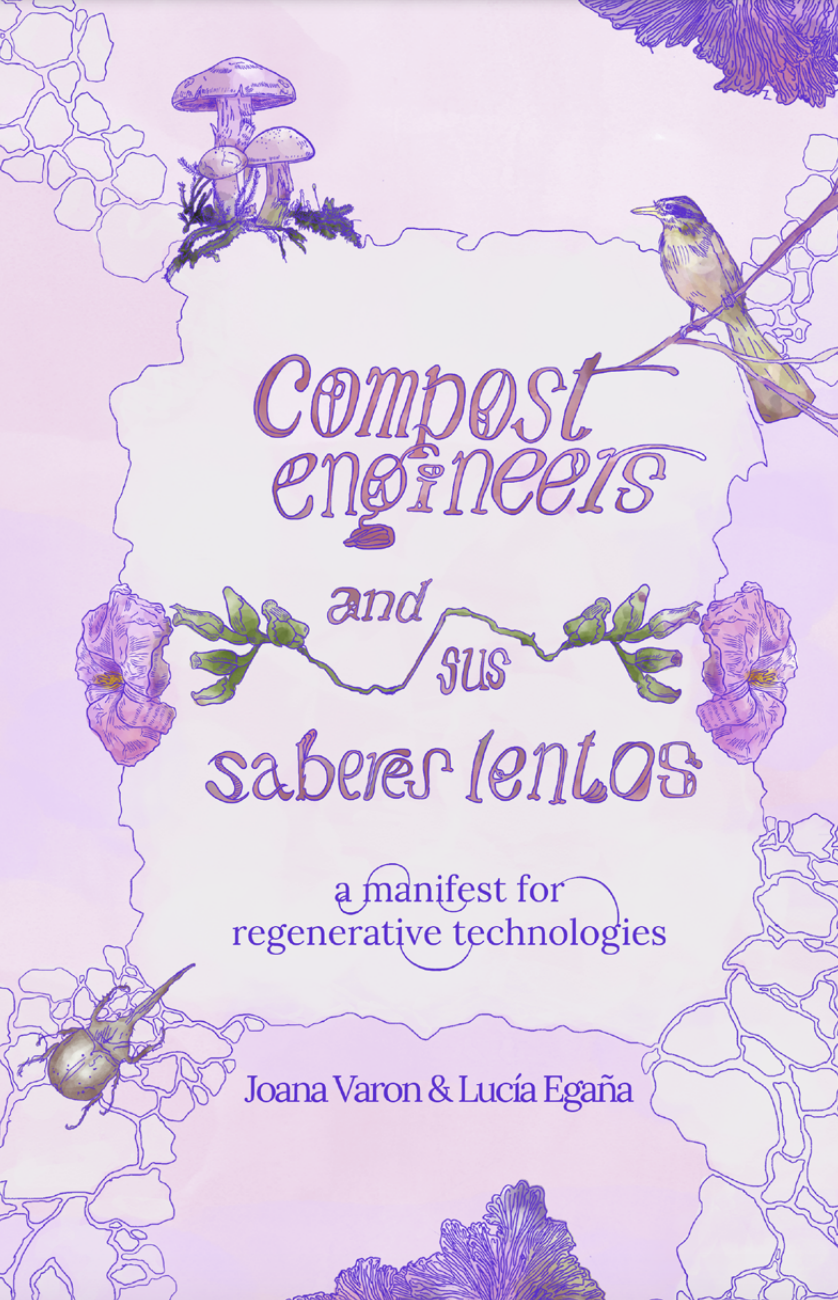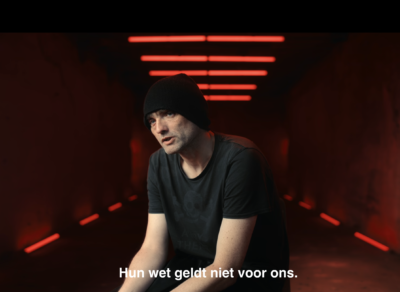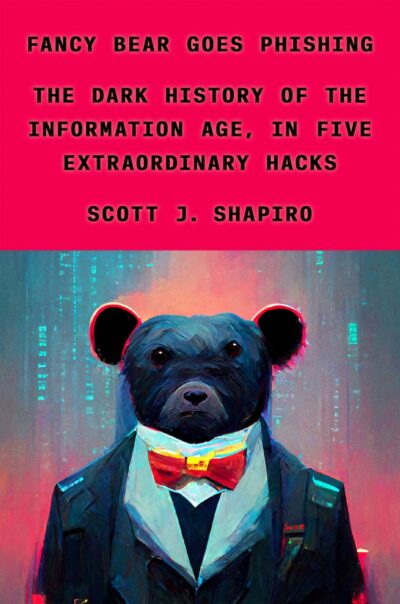Door: Joana Varon & Lucía Egaña Rojas.
https://codingrights.org/docs/compost_engineers.pdf
“The concept “artificial intelligence” is a loaded terminology, situated in a very specific territory and sparking a very particular imaginary of possible futures. Silicon Valley and Hollywood’s fast and metallic futures, which are incompatible with values, desires, and dreams of decolonial, antiracist, and transfeminist visions of being on this planet. We seek to explore and expose the limitations of applying the term AI to feminist technological practices and propose alternative epistemologies and approaches to develop decolonial feminist tech. This paper is an epistemological, historical, political, and creative exercise to expose the harmful Western-centered logics and imaginaries that are guiding tech development towards technologies of war, extractivism and domination and seek alternative terminologies that serve us as tools to help envision systems guided by social-environmental justice and feminist principles, technologies of life and del buen vivir.
To achieve such goal, we travel in the history of western science fiction to untangle colonial and patriarchal imaginaries that are guiding mainstream tech development; start to decolonize our imaginaries by departing from a map of everything that is left behind when we use the terminology “artificial intelligence”, and from a brief immersion in biology and ecology studies, focused on mycology, soil studies, and a symbiotic approach to evolution, using radical imagination and speculative narratives, we propose concepts to inspire tech development that can be regenerative and in symbiosis with the Earth, all its beings, temporalities and rhythms. Guided by these concepts, this article ends with a proposal of a feminist tech prototype, an exercise to regenerate, recognize, and reconnect humans with the organic decision-making systems that operate in the wild: the compost engineers’ regenerative systems.”
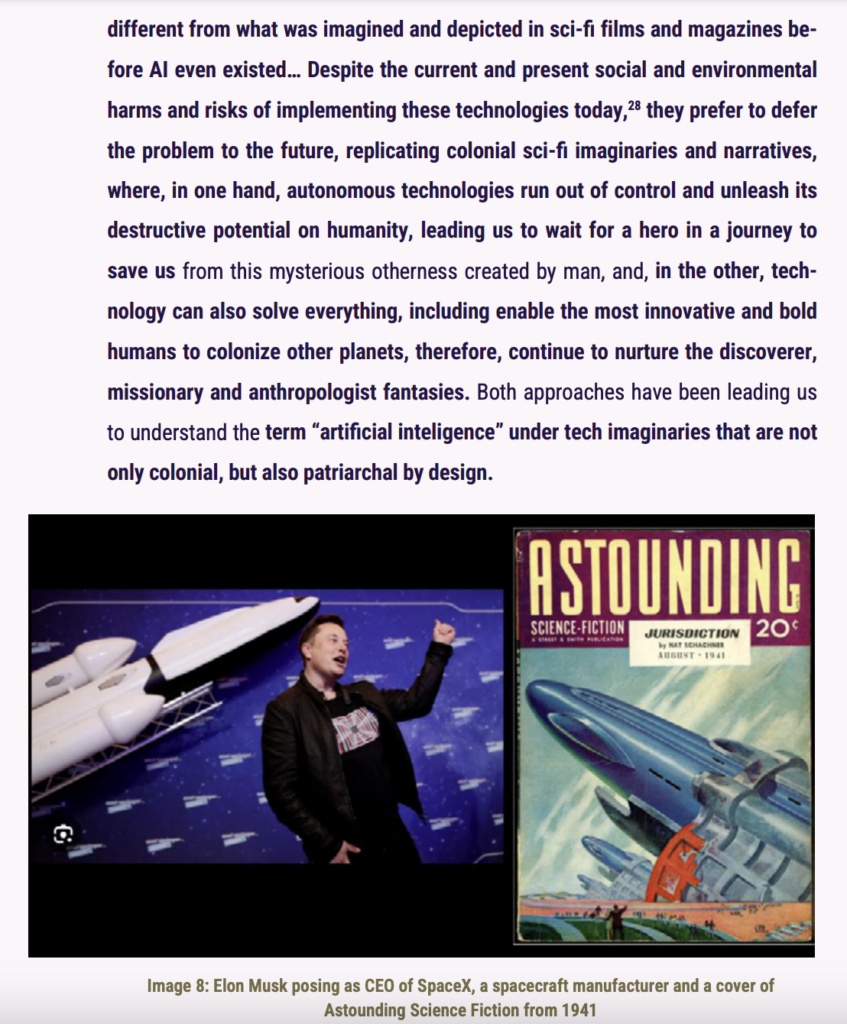
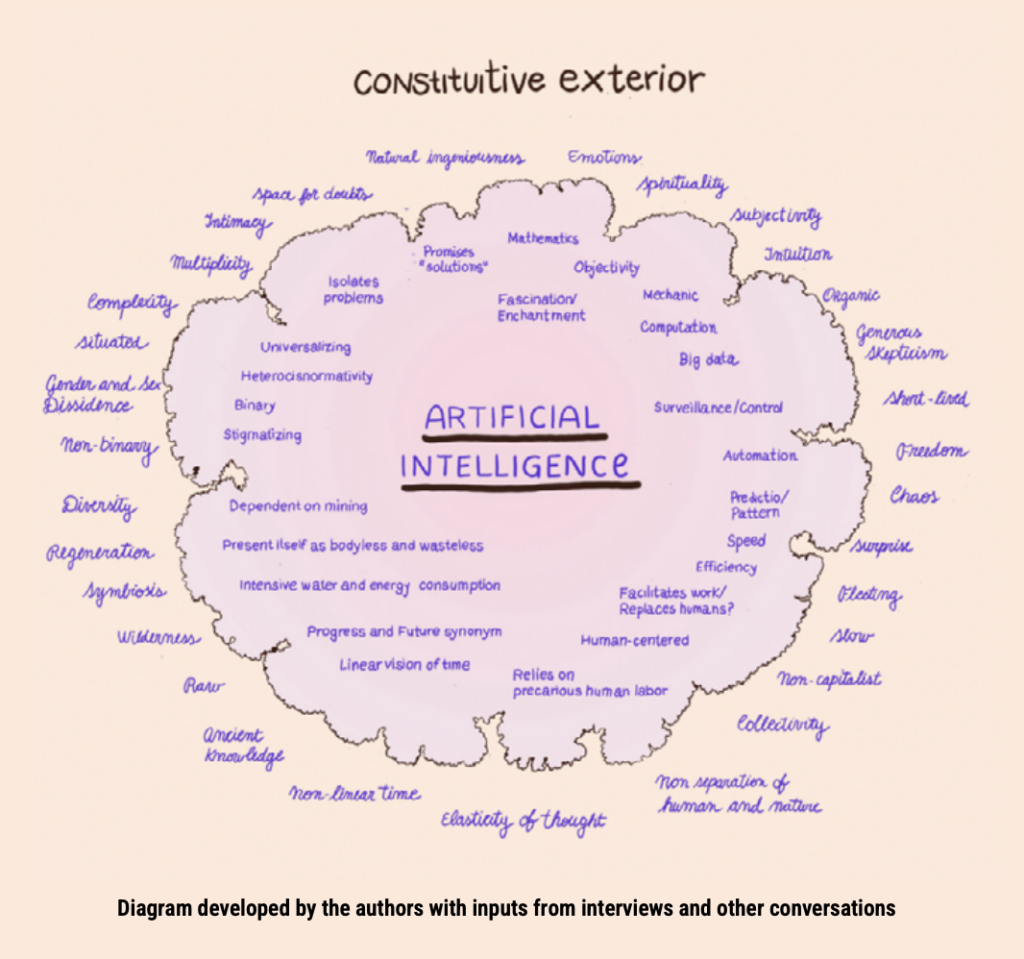
“The compost engineers and their slow knowledge, seek to imagine technologies that operate and perpetuate notions of responsible consumption, beyond circle economy and minimum waste, while recalling ancient knowledge and technologies. As a first step, we propose a rustic wild garden as the space of action to develop the compost engineers regenerative systems. It is an ecosystem that is simple and complex at the same time, that functions in an absolutely intelligent way, but whose intelligence is neither artificial nor patriarchal nor human-centric. Ultimately, the compost engineers we want to open space to imagine:
- Learn with living ecosystems to envision technologies of life
- Reverse hierarchies between high-tech and low-fi imaginaries
- Technologies that require a different temporality.
- Less extractivist technologies
- Predictive technologies that are not deterministic
- Technologies that reduce waste instead of reproducing it.”
